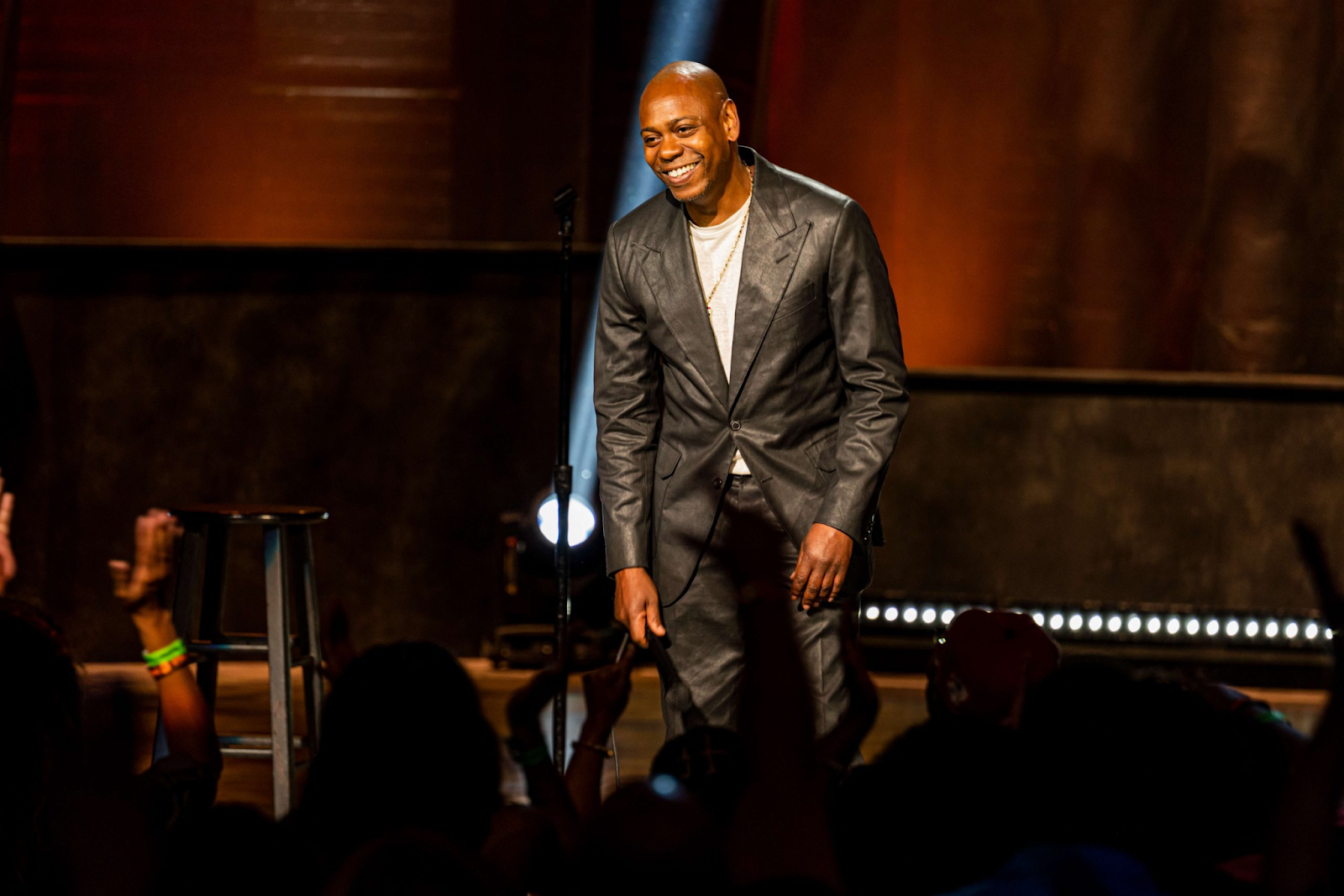Funny or Offensive? A Ceaseless Debate in Comedy
On October 5th, 2021, Netflix subscribers tuned in to Dave Chappelle’s highly anticipated comedy special, ‘The Closer’. Over the course of 1 hour and 12 minutes, Chappelle covered topics from the Covid-19 pandemic to the controversy surrounding rapper DaBaby to the #MeToo movement. His social commentary and humour were raunchy, as is characteristic for the comedian, and his jokes undoubtedly pushed boundaries. However, it was his jokes made at the expense of the LGBTQ+ community that left audiences polarized. Had Chappelle’s comments crossed the line?
Since the special’s release, organizations like the National Black Justice Coalition (NBJC) and GLAAD called out Chappelle and Netflix for condoning transphobia and urged them to stop streaming the content. A group of Netflix employees opposed the special by staging a virtual walkout in Los Angeles on October 20th. Still, regardless of the fair share of adverse responses, Co-chief executives Reed Hastings and Ted Sarandos have stood by their support for Dave Chappelle and ‘The Closer’. Hastings cited Netflix’s “commitment to artistic expression” as a defence for continuing to promote the special, which as of now, is still streaming on the platform.
Whether it is a controversial stand-up routine like ‘The Closer’, a Saturday Night Live skit sparking backlash, or any other joke intended to be received humorously and instead deemed insulting, where we draw the line between funny and offensive in comedy is always a hotly debated topic. The question of whether comedy should be concerned with being politically correct, or PC, has been reignited time and time again, by a seemingly endless stream of contentious jokes.
Comedy is Comedy, Just Let Them Be Funny!
Let’s examine the arguments on either side of this debate, starting with those who believe that there is no place for political correctness in a comedy club.
Many comedians, including household names like Jerry Seinfeld and Chris Rock, believe that the so-called politically correct ideology represents an unreasonable sensitivity that hurts comedy and restricts open discussion. Seinfeld even refuses to perform on college campuses because he finds them too PC for his humour.
In an interview with Vulture, Chris Rock shared that comedians, unlike many other entertainers, practice their material in front of a crowd. Rock describes this workshopping process as “really messy” and at times “downright offensive.” In the same interview, he says that there used to be a time when comedians could make a mistake, realize they went too far, and get the chance to learn and grow from the incident. Now, every audience member has a recording device which, paired with today’s increasingly PC mindset, means “you don’t have room to make mistakes,” says Rock.
The consensus of the many comics who label themselves anti-PC seems to be that worrying oneself about political correctness is the enemy of humour. Many comics strongly believe that comedy is a form of expression and should be a space to comment upon life, even the darker aspects, and have your words not be interpreted negatively but rather as a means for coping with life’s hardships.
It’s 2021, Joke Along the Lines of the Political Climate.
On the other side of this dispute, there is the belief that comedy must progress with the changes that have taken place in society over the last 50 years. We now live in a time where audiences no longer find it acceptable for comedians to make jokes and use slurs that target and inflict harm on marginalized communities to which they do not belong.
Supporters of integrating a politically correct ideology into the world of comedy have adamantly expressed that this shift does not mean that comedians cannot joke about whatever they choose, rather they are forced to approach comedy in a more creative way.
In an article for the Guardian, Rebecca Shaw, an Australian writer, wrote about her experience as a queer woman listening to comedians perform routines charged with homophobic punchlines. She states that even though this may have been accepted comedy at the time, she was always “sitting there, humiliated and scared.”
Stand-up comic Katherine Jessup believes that the root of this problem is that for a long time, men had the power in stand-up community. She feels that this distaste for PC mainly comes from long-time male comics feeling threatened and not wanting to adapt to a more progressive age of comedy. “More than anything else it’s male comics and men in comedy sort of saying, like ‘You know you’re taking this from me and I should have the right to say whatever I want to say’… There is a lot of patriarchy, a lot of racism…” Katherine said in an interview while reflecting on the culture of comedy today.
This dispute has proved near impossible to solve and it is evident that deciding if a joke has gone too far is very circumstantial. It takes more than seeing the joke spelled out in front of you, questions need to be asked. Who is telling the joke? Everything from the comedian’s gender to their race, sexuality and more could determine how the joke is received. Who is the audience? What are their ethics and how will they respond to this material? Honestly, in the age of technology, the reality is that as soon as someone hits record, the whole world becomes your audience. The time and place are also incredibly relevant since a recent event could make a comment either timely or deeply insensitive.
And so the question remains…will these conflicts over comedic material ever be a thing of the past? Or is stirring the pot simply the nature of comedy?
